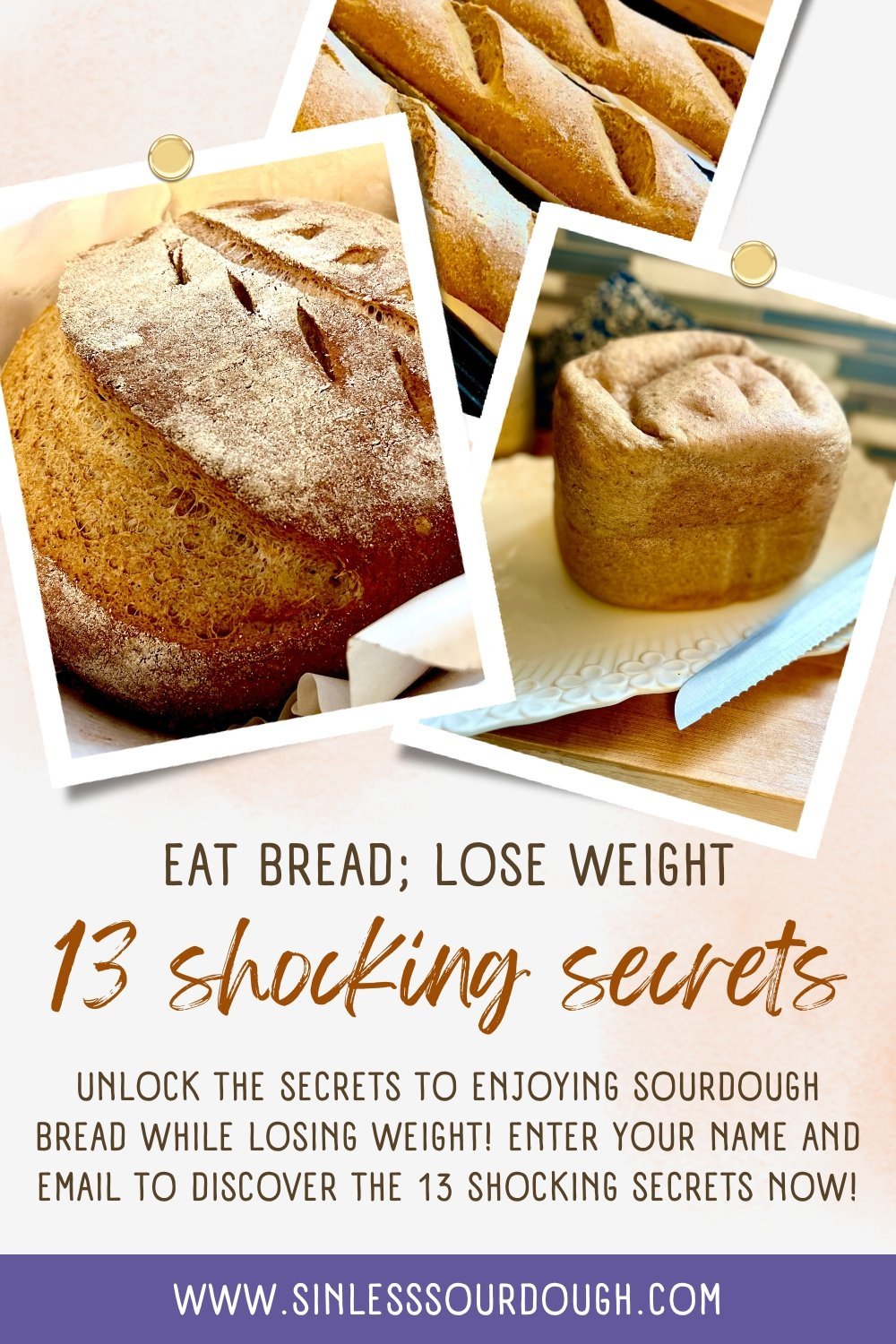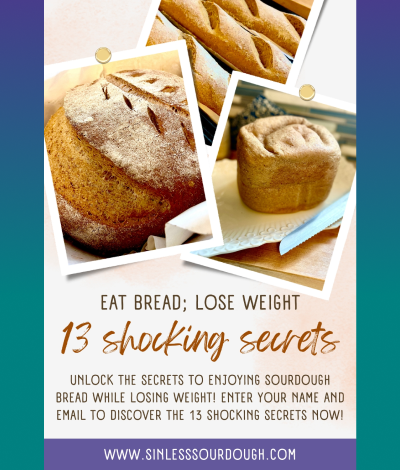How To Choose Low-Sugar Non-Alcoholic Wine

Best Low-Sugar Non-Alcoholic Wines 2024 are here, and I’m excited to share my findings with you! I’ve meticulously researched and curated a list of top choices for you to explore. From crisp Sauvignon Blancs to bold red blends, these wines offer amazing flavors with minimal sugar content. I’ll guide you through reading labels, understanding alcohol removal techniques, and even suggest some food pairings. Whether you’re watching your weight, living alcohol-free, or just curious about this growing trend, there’s something here for you.
Let’s explore the world of low-sugar non-alcoholic wines together and help you discover your new favorite bottle. This carefully compiled selection allows you to research and choose the perfect option for your taste and lifestyle.
Here are the top 10 key points:
- Non-alcoholic wine contains significantly fewer calories than regular wine, typically 3-4 times less, making it beneficial for weight management.
- Low-sugar non-alcoholic wines retain the antioxidants and polyphenols found in regular wine, which can provide health benefits such as improved heart health and cell protection.
- Studies suggest that non-alcoholic red wine may help lower blood pressure and reduce the risk of heart diseases and strokes.
- Non-alcoholic wine has been shown to improve cholesterol levels by increasing “good” HDL cholesterol.
- Some research indicates that non-alcoholic berry wine may have anti-diabetic potential, potentially reducing medication needs for Type 2 diabetes.
- The antioxidant and anti-inflammatory properties in non-alcoholic wines may aid in exercise recovery by reducing muscle inflammation.
- Choosing non-alcoholic wine allows individuals to maintain social routines and engagements without consuming alcohol or experiencing hangovers.
- When looking for low-sugar non-alcoholic wines, it’s crucial to read labels carefully, checking for sugar content listed in grams per liter (g/L) or grams per 100ml.
- Organic options for low-sugar non-alcoholic wines are available, offering choices for health-conscious consumers across different wine types.
- Non-alcoholic wines can vary in carbohydrate and sugar content, with some brands now offering zero-carb options, but it’s important to note that even low-sugar varieties may contain carbohydrates from additives like glycerol.
Is Non-Alcoholic Wine Low In Sugar?
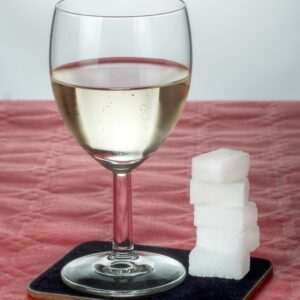
Non-alcoholic wine can vary in carbohydrate and sugar content, but there are some low-sugar options from which to chose.
Here are some key points about carbs and sugar in non-alcoholic wine:
- Sugar content varies: Non-alcoholic wines typically contain more sugar than regular wines, as some sugar is often added to balance the flavor after alcohol removal. So be sure to read the label first.
- Low-sugar options exist: Many producers now offer low-sugar non-alcoholic wines to cater to health-conscious consumers like you and me!
- Zero Carb Options: There are less than a handful of zero carb wines available, but they are out there!
- Comparison to regular wine: While non-alcoholic wines may have more sugar than regular wines, they generally contain only about a quarter of the calories because the alcohol is removed.
- Balance is key: Some sugar is often necessary to balance the acidity, to give the wine some weight and texture, and to maintain flavor in the non alcoholic wines.
- Alternative sweeteners: Some brands use alternative sweeteners like stevia or monk fruit to reduce sugar content.
- Sparkling wines: Bubblies may typically have higher sugar content due to higher acidity levels. Again, read the nutritional label.
What Low-Sugar Non-Alcoholic Wines Are Available?
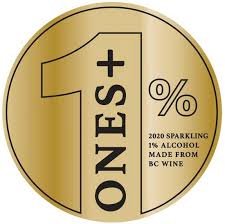
Here is a list for low-sugar sparkling, whites, rosés, and reds:
Sparkling Wines:
- ONES Sparkling White: 9.6 calories and 0g sugar per 100mL (Click this link for a 10% discount on ALL Ones Sparkling Wines)
- ONES Sparkling Rosé: 7.2 calories and 0g sugar per 100mL (Click this link for a 10% discount on ALL Ones Sparkling Wines)
- ONES Sparkling Red: 7.2 calories and 0g sugar per 100mL (Click this link for a 10% discount on ALL Ones Sparkling Wines)
- Sovi Sparkling Wine: 10 calories and 1.3g sugar per 100mL
- Joyus Sparkling White: 12.5 calories and 2.5g sugar per 100mL
- Joyus Sparkling Rose: 12.5 calories and 2.5g sugar per 100mL
- Noughty Sparkling Chardonnay: 14 calories and 2.9g sugar per 100mL
- Thomson & Scott Noughty Sparkling Chardonnay: 14.4 calories and 3.2g sugar per 100mL
- Château del ISH (Sparkling Rosé): 20 calories and 3.9g sugar per 100mL
- Edanvale Sparkling Cuvee Spanish: 24 calories and 3.8g sugar per 100mL
- Edenvale Sparkling Rose: 36 calories and 3.8g sugar per 100mL
- Oddbird Non-Alcoholic Sparkling Rosé: 19.4 calories and 4.4g sugar per 100mL
- Edenvale Non Alcoholic Rose: 21 calories and 4.6g sugar per 100mL
- Edenvale Sparkling Shiraz: 21 calories and 4.7g sugar per 100mL
- Edanvale Sparkling Cuvee: 23 calories and 5.1g sugar per 100mL
White Wines:
- The Expedition Series Non-Alc Verdejo Sauvignon Blanc: 24 calories and 0g sugar per 100mL
- Sovi Chenin Blanc: 10 calories and 1.3g sugar per 100mL
- Edenvale Semillon Sauvignon Blanc: 8 calories and 1.6g sugar per 100mL
- Giesen Sauvignon Blanc: 12.5 calories and 1.75g sugar per 100mL
- Brochet Zero Organic Sauvignon Blanc: 8 calories and 1.8g sugar per 100mL
- Noughty Blanc De-alcoholised White Wine: 17 calories and 2.0g sugar per 100mL
- Princess Alternativa Bianco Dry Non-Alcoholic White Wine: 17 calories and 2.6g sugar per 100mL
- Edanvale Pinot Gris: 13 calories and 2.8g sugar per 100mL
- Lautus Chardonnay: 20 calories and 2.8g sugar per 100mL
- Edenvale The Spanish Expedition Series Verdejo Sauvignon Blanc: 17 calories and 3.6g sugar per 100mL
- Edenvale Non-Alc Chardonnay: 18 calories and 3.9g sugar per 100mL
- Leitz Eins Zwei Non-Alc Riesling: 24 calories and 4.9g sugar per 100mL
- Edenvale Blanc de Blanc Premium Reserve: 23 calories and 5.2g sugar per 100mL
- Luminara Napa Valley Chardonnay Dealcoholized: 18 calories and 5.2g sugar per 100mL
- Le Petit Beret Virgin Sauvignon Blanc: 25 calories and 6.2g sugar per 100mL
Rosé Wines:
- Sovi Sparkling Rose: 10 calories and 1.3g sugar per 100mL
- Joyus Rose: 10 calories and 2g sugar per 100mL
- Noughty Non-Alcoholic Sparkling Rosé: 18 calories and 4g sugar per 100mL
- Wölffer Spring in a Bottle Non-Alcoholic Rosé: 24.5 calories and 4.8g sugar per 100mL
- Edenvale Rose: 22 calories and 5.5g sugar per 100mL
Red Wines:
- YOURS Non-Alcoholic California Red Blend: 6.8 calories and 0.68g sugar per 100mL
- Sovi Reserve Red: 10 calories and 1.3g sugar per 100mL
- Joyus Cabernet Sauvignon: 16.7 calories and 1.3g sugar per 100mL
- Alcohol Removed Cabernet Sauvignon: 13.3 calories and 1.3g sugar per 100mL
- Edenvale Non-Alcoholic Grenach Shiraz Mataro: 10 calories and 1.8g sugar per 100mL
- Naughty Red: 14 calories and 2.5g sugar per 100mL
- Lautus Non-Alcoholic Red: 12 calories and 3g sugar per 100mL
- Edenvale Non-Alcoholic Tempranillo Cabernet Sauvignon: 14 calories and 3g sugar per 100mL
- Luminara Red Blend: 20 calories and 3.2g sugar per 100mL
- Edenvale Shiraz: 17 calories and 3.8g sugar per 100mL
- Edenvale Cabernet Sauvignon: 18 calories and 3.9g sugar per 100mL
- Edenvale Premium Reserve Pinot Noir: 20 calories and 4.3g sugar per 100mL
- Leitz Eins-Zwei-Zero Pinot Noir: 21 calories and 4.9g sugar per 100mL
*I have not tasted all these wines. This list is to only provide you the names of the wines so you can undertake your own investigation.
Can Diabetics Drink Non-Alcoholic Wine?

Here are some key points:
- Non-alcoholic wine can be an option for you if you are diabetic. But be cautious. It’s vital you read and understand the nutritional labels. For safety stick to NA wines with zero sugar and zero carbs. This dramatically narrows your list, but it ensures safety.
- Most non-alcoholic wines can contain sugar so read the label.
- Some non-alcoholic wines can have zero sugar, but still have carbs, as high as 10 grams of carbs per serving. The carbs can derive from glycerol. Glycerol is used to provide weight and the perception of sweetness to the wine. It can be used to balance the acidity. Glycerol is a sugar alcohol. Glycerol consumption by diabetics requires careful consideration due to potential interactions with diabetes medications and its effects on blood glucose levels. Be sure to consult your physician before consuming non alcoholic wines with low sugar and high carbs, as this may be an indication of the addition of glycerol.
- The sugar content in non-alcoholic wine can cause blood sugar spikes. If you are diabetic be sure to consult their physician before consuming any non alcoholic wine.
- It’s advisable for diabetics to limit consumption of non-alcoholic wine and preferably drink it with a meal containing fats, proteins, or fiber to reduce the glycemic impact.
Does Non-Alcoholic Wine Have Fewer Calories Than Regular Wine?

Yes, non-alcoholic wine generally has significantly fewer calories than regular wine.
Here are the key points comparing the calorie content:
Regular wine typically contains about 115-130 calories per 5 oz (150ml) glass. Non-alcoholic wine usually contains only about 30-60 calories per 250ml serving, which is less than half the calories of regular wine.
- A 125ml serving of regular red wine has approximately 108-120 calories
- The same serving of non-alcoholic red wine has only about 20-30 calories
The main reason for this difference is the alcohol content. Alcohol provides about 7 calories per gram, contributing significantly to the calorie count in regular wine.
How Is Low-Sugar Non-Alcoholic Wine Made?

Non-alcoholic wine is typically made through a process that starts with regular wine production, including grape harvesting, crushing, and fermentation. The key difference lies in the final step, where the alcohol is removed from the fermented wine. This is primarily done through one of three methods: vacuum distillation, reverse osmosis, or spinning cone technology. In vacuum distillation, the wine is heated at low temperatures (25°C-30°C) to evaporate the alcohol while preserving flavors. Reverse osmosis uses a sophisticated filtration system to separate alcohol molecules from the wine. The spinning cone method involves repeated low-temperature evaporation and condensation using centrifugal forces to separate alcohol and other volatile compounds. After dealcoholization, winemakers often add back aromatic compounds, adjust sweetness with grape juice or must, and may incorporate other elements to enhance texture and flavor. The goal is to create a product that closely mimics the taste, aroma, and mouthfeel of traditional wine while containing little to no alcohol.
Check out this blog for more information on everything you need to know about the making of non-alcoholic wine:
https://ketopaleosharimac.com/non-alcoholic-wine-boot-camp-master-your-palate/
What Are The Health Benefits of Drinking Low-Sugar Non-Alcoholic Wine?
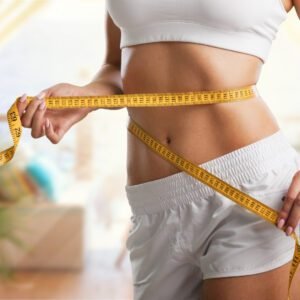
WEIGHT LOSS ON THE KETOGENIC DIET
Here are the key potential health benefits:
- Lower calorie content: Non-alcoholic wine typically contains 3-4 times fewer calories compared to regular wine, making it beneficial for weight management.
- Antioxidant benefits: Non-alcoholic wine retains the polyphenols and antioxidants found in regular wine, which can help protect cells from damage and improve heart health.
- Reduced blood pressure: Studies have shown that non-alcoholic red wine can help lower blood pressure.
- Decreased risk of certain cancers and heart disease: Research suggests non-alcoholic wine may reduce the risk of heart diseases by 14% and strokes by up to 20%.
- Improved cholesterol levels: Non-alcoholic wine has been shown to increase levels of “good” HDL cholesterol and decrease levels of “bad” LDL cholesterol.
- Anti-diabetic potential: Some studies indicate that non-alcoholic berry wine may help reduce the amount of medication needed for Type 2 diabetes and minimize its harmful effects.
- Better exercise recovery: The antioxidant and anti-inflammatory properties in non-alcoholic drinks may help reduce muscle inflammation after exercise.
- Hangover-free: Choosing non-alcoholic wine allows you to enjoy the taste without the negative effects of alcohol, including hangovers.
- Maintains social routines: Non-alcoholic wine can help maintain social engagements and routines for those looking to reduce or eliminate alcohol consumption.
- Potential cognitive benefits: Some research suggests that non-alcoholic wine components may help slow the progression of neurological disorders like Alzheimer’s and Parkinson’s Disease.
- Weight Management: Switching from regular wine to non-alcoholic wine can lower your carb, sugar, and calorie intake thereby helping you to lose or maintain a desired weight.
Can You Lose Weight By Switching To Low-Sugar Non-Alcoholic Wine?
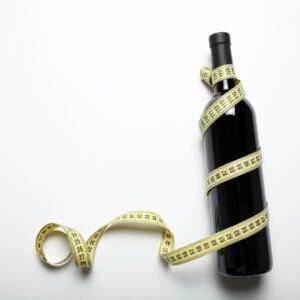
Yes, non-alcoholic wine can be a good option if you’re trying to lose weight.
Here are some key points for weight management:
- Lower calorie content: Non-alcoholic wines typically contain significantly fewer calories compared to regular wines
- Reduced sugar intake: Many non-alcoholic wines are now produced with low sugar content, which can help reduce overall calorie and carbohydrate intake.
- Avoiding alcohol calories: Alcohol provides about 7 calories per gram, so eliminating it removes a significant source of empty calories.
- Potential appetite control: Some studies suggest that non-alcoholic wine may help reduce cravings for higher-calorie foods like sweets and desserts.
- Maintaining social routines: Non-alcoholic wine allows people to participate in social drinking situations without consuming alcohol calories.
- Better exercise recovery: The antioxidant and anti-inflammatory properties in non-alcoholic drinks may help reduce muscle inflammation after exercise, potentially supporting fitness efforts.
- Hydration: NA wines with zero to low carbs and sugar can be a delicious option for hydration after a hard workout.
However, it’s important to note:
- Moderation is still key, as even low-sugar non-alcoholic wines contain some calories and sugars.
- Weight loss requires an overall calorie deficit, so switching to non-alcoholic wine should be part of a broader healthy diet and exercise plan.
- Individual results may vary, and it’s best to consult with a healthcare professional for personalized weight management advice.
What are the best food pairings for low-sugar non-alcoholic wines?

KETO ZUCCHINI TAPAS
Dishes That Work with NA Whites:
Fresh Tomato Soup (Heart Healthy)
Zucchini Tapas (Heart Healthy)
Salmon Dishes That Work with NA Roses:

KETO SMOKED SALMON ROLLS
Smoked Salmon Rolls (Heart Healthy)
Maple Lemon Salmon (Heart Healthy)
Salmon and Brussels Sprouts (Heart Healthy)
Bacon-Wrapped Salmon Asparagus (Heart Healthy)
Salmon with Lemon, Honey, Thyme
Dishes That Work With NA Red Wines:
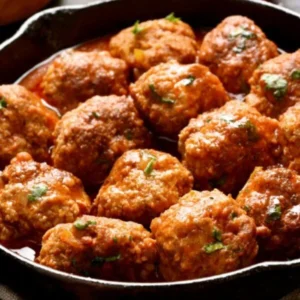
Keto Lalzy Pasta and Meatballs
Montreal Strip Loin (Healthy Heart)
Steak Marinade (Heart Healthy)
Crock-Pot Beef (Heart Healthy)
Bacon-Covered Meatloaf (Heart Healthy)
Roast Beef Spice Rub (Heart Healthy)
Ultimate Steak Rub (Heart Healthy)
Are there organic options for low-sugar non-alcoholic wines?
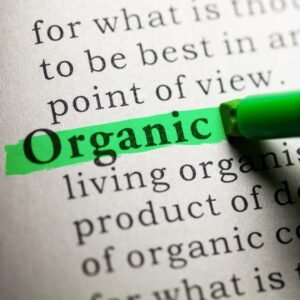
Yes, there are organic options available for low-sugar non-alcoholic wines.
Here are some key points:
- Availability: Some brands offer organic non-alcoholic wines that are also low in sugar.
- Variety: You can find organic options across different wine types, including red, white, rosé, and sparkling varieties.
- Popular brands:
- Oddbird Low Intervention 2 Organic White
- Oddbird produces a low-alcohol organic Merlot-Shiraz blend.
- Production methods: Organic non-alcoholic wines are made from grapes grown without synthetic pesticides or fertilizers.
- Labeling: Look for certifications like “organic” or “biodynamic” on the label to ensure the wine meets organic standards.
- Health considerations: Organic low-sugar non-alcoholic wines can be a good choice for those looking to reduce both alcohol and sugar intake while still enjoying wine.
- Taste profile: Many organic non-alcoholic wines aim to replicate the taste of traditional wines while keeping sugar content low.
- Availability: These wines are becoming increasingly available through specialized online retailers and some physical stores.
- Price point: Organic non-alcoholic wines may be priced similarly to or slightly higher than their non-organic counterparts due to the organic production methods.
- Shopping: When shopping for organic low-sugar non-alcoholic wines, it’s important to read labels carefully and check the sugar content, as “organic” doesn’t automatically mean low in sugar. Many brands are now focusing on creating high-quality organic options that cater to health-conscious consumers looking for low-sugar alternatives.
How do I read labels to find truly low-sugar non-alcoholic wines?
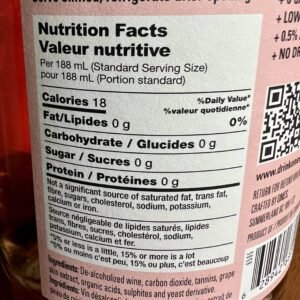
Here are points to keep in mind:
- Look for the sugar content listed in grams per liter (g/L) or grams per 100ml. Wines with 5 g/L or less are considered low-sugar.
- Low-sugar or no-sugar non-alcoholic wines may still contain carbohydrates from glycerol.
- Glycerol is a natural by-product of fermentation and is often added to enhance texture and weight. It’s a sugar alcohol that your body processes differently from regular sugar.
- Calculate about half the glycerol content as carbs for your daily macro count.
- Example: 10 grams of glycerol should be counted as 5 grams of carbs.
- Other additives in non-alcoholic wines can also contribute to carb content:
- Sweeteners like erythritol or xylitol
- Thickening agents such as carrageenan or gum arabic
- These additives may not be listed as “sugar” but can impact total carbohydrate content.
- For accurate tracking, consider the total carbohydrate content, not just sugar content.
- This information helps consumers make more informed decisions, especially those following low-carb diets or managing blood sugar levels. It emphasizes the importance of looking beyond just the sugar content when assessing the nutritional impact of non-alcoholic wines.
Nutritional information:
- Most countries require brands to provide detailed nutritional facts, including sugar content per serving.
- Terms like “Brut Nature” or “Zero Dosage”: These indicate very low or no added sugar, especially in sparkling wines. But don’t count on these terms as they can vary from country to country, brand to brand. Read the label!
- Cool climate regions: Wines from cooler regions tend to have lower natural sugar content.
- Alcohol content: Non-alcoholic wines typically contain less than 0.5% alcohol by volume. They are referred to as de-alcoholized wine.
- Specific varietals: Certain grape varieties like Sauvignon Blanc, Pinot Grigio, and Chardonnay from cool climates are often naturally lower in sugar.
- Production method: Look for wines that use dealcoholization techniques rather than just being unfermented grape juice.
- Organic certification: While not a guarantee of low sugar, organic wines often have fewer additives.
- QR codes or website links: New EU regulations require wines to provide access to ingredient lists, which can help identify added sugars.
- Marketing claims: Be cautious of vague “low-sugar” claims without specific numbers to back them up.
- Read, Read, Read: Remember that “low-sugar” doesn’t always mean better quality. Focus on finding wines that balance your health preferences with enjoyable taste profiles. Also, note that regulations are changing, and more detailed labeling is becoming mandatory in many regions, which will make it easier to identify truly low-sugar options in the future
What Other Non Alcoholic Wines Might You Find Interesting?
- Non-Alcoholic Wine To Elevate Your Thanksgiving Feast
- Best Non Alcoholic Wine Options For Low Carb Thanksgiving
- Non Alcoholic Sparkling Wine and Low Carb Sourdough Delights
- Non Alcoholic Wine Explained For Low Carb Sippers
- 10 Unique & Healthy Mocktails You Need To Try
- Cracking The Code Of Pairing Non Alcoholic Wines With Cheese
- Secrets To Pairing Alcohol-Free White Wines with Seafood Delights
- How To Choose The Best Zero Alcohol Red Wine
- ONES Sparkling Rose & Lemon-Ginger Cod
- 16 Jaw-Dropping Non Alcoholic Wine Health Benefits
- Non Alcoholic Wine Explained For Low-Carb Sippers
- How To Master Non-Alcoholic Wine Etiquette At Social Events
- How To Choose The Best Zero Alcohol Red Wine
- Cracking The Code Of Pairing Non Alcoholic Wines With Cheese
I’m excited to share with you my good news… Introducing Sinless Sourdough – Where Ancient Art Meets Low Carb Science!

Stop sacrificing flavor for your health goals – our authentic heritage sourdough starters have been specially adapted for low-carb baking
Limited Time Offer: 82% OFF – Only $19.99 Today (Regular Price: $113)
Sinless Sourdough™ Starter + Membership Includes:
- Authentic Heritage Starter shipped directly to your door
- Complete Video Training Library showing you step-by-step how to create:
- Artisan boules and batards with delicious crispy crust and soft interior
- Crisp French baguettes for the dinner table or as crostini
- Chewy Montreal-style bagels that won’t spike your blood sugar
- German street pretzels with authentic alkaline crust
- Convenient everyday bread machine loaves for sandwiches
- Supportive Community of fellow low-carb bakers to share your journey
- Extensive Recipe Collection for using sourdough discard (nothing goes to waste!)
“After years of disappointing low-carb bread experiments, Sinless Sourdough changed everything. I’m enjoying real sourdough again without the carb guilt!” — Maria T.
“My family can’t tell the difference between these loaves and traditional bread. The starter is incredibly active and the results are amazing!” — James K.
🔥 CLAIM YOUR MEMBERSHIP NOW 🔥
Use code: Sinless82 at checkout Offer expires soon! Limited starter batches available
82% OFF TODAY FOR MEMBERSHIP
Sinless Sourdough™ Heritage Collection

Transform your low-carb baking with our Global Heritage Collection featuring unique starters from historic moments across continents. Each brings its own personality and flavor profile while maintaining excellent nutritional values—just 1g net carbs compared to 8-10g in traditional starters.
Choose from:
- 1849 San Francisco Gold Rush – Authentic California sourdough character
- 1898 Yukon Gold Rush – Subtle tanginess with notes of butter
- 1847 Oregon Trail – Rustic character with exceptional rise
- 1000-Year-Old Italian Monastery – Delicate complexity with ancient lineage
Each starter connects you to centuries of baking tradition while supporting your modern low-carb lifestyle. Our proprietary transformation process preserves their unique characteristics while adapting them for health-conscious baking.
When you purchase any Sinless Sourdough™ starter, you receive our comprehensive onboarding sequence teaching you exactly how to revive your dehydrated starter for perfect low-carb, high-protein results every time.
Click the link:
SINLESS STARTER SHOP
🍞 START YOUR LOW-CARB SOURDOUGH JOURNEY TODAY! 🍞
Medical Studies and Reviews on Sourdough
Here they are:
Does Sourdough Bread Provide Clinically Relevant Health Benefits?
The Sourdough Microbiome
Study Of Sourdough Starter Microbiome To Boost Bread Quality and Safety
Sourdough Microbiome Comparison and Benefits
Effect of Breadmaking Process on In Vitro Gut Microbiota Parameters in Irritable Bowel Syndrome
Nutritional Benefits of Sourdough; Systematic Review
Sourdough-leavened bread improves postprandial glucose and insulin plasma levels in subjects with impaired glucose tolerance
Use of sourdough in low FODMAP baking
A novel formulation of sourdough bread enriched with plant sterols and high-fibre inulin improves metabolic control in type 2 diabetes
Impact of sourdough fermentation on appetite and postprandial metabolic responses – a randomised cross-over trial with whole grain rye crispbread
Disclaimer:
All information provided on this website regarding the health benefits of sourdough low carb bread is intended for educational purposes only. The content presented is not meant to be taken as specific medical advice for any individual. It should not be considered a replacement for professional medical guidance or treatment. If you have any health concerns, especially related to diabetes, pre-diabetes, or any other medical condition, please consult with a healthcare professional immediately.
- UNUSUAL KETO INSTANT POT RECIPES FOR 2025 - April 27, 2025
- Boost Your Keto Diet with These Non-Alcoholic Wine Hacks - April 27, 2025
- 10 Unique & Healthy Mocktails You Need to Try - April 27, 2025

